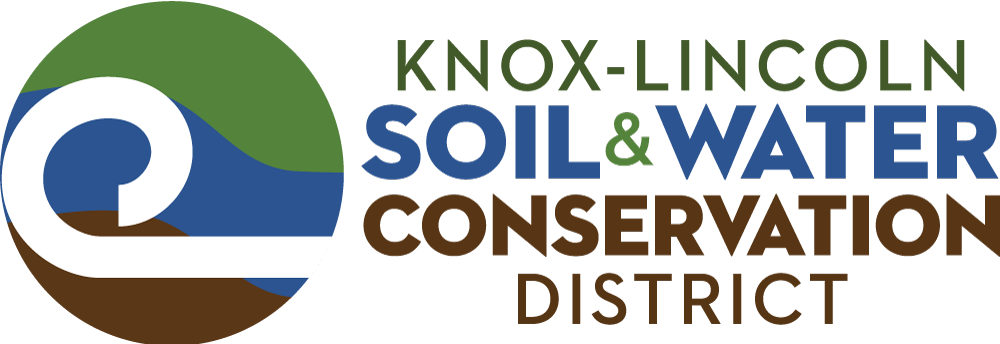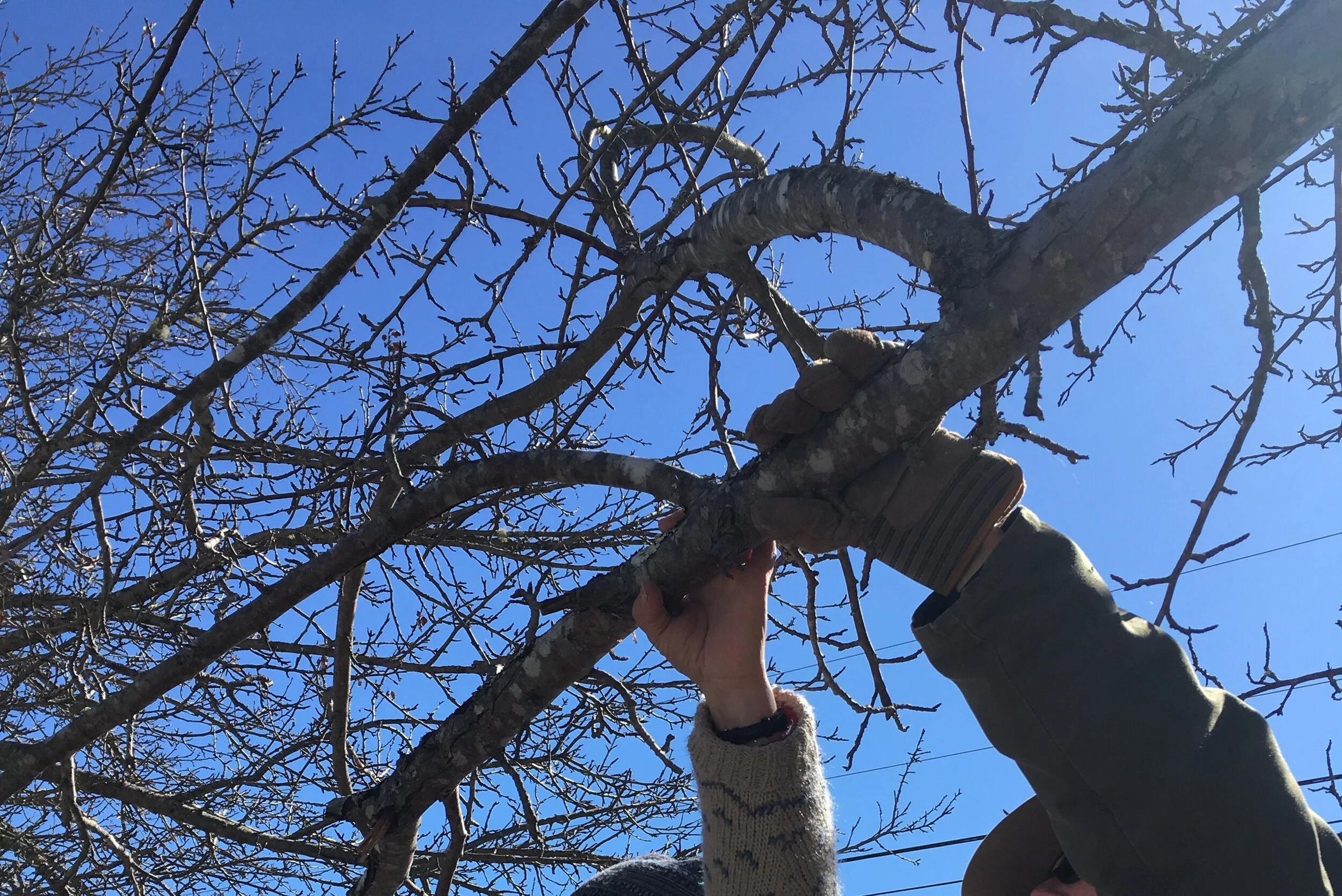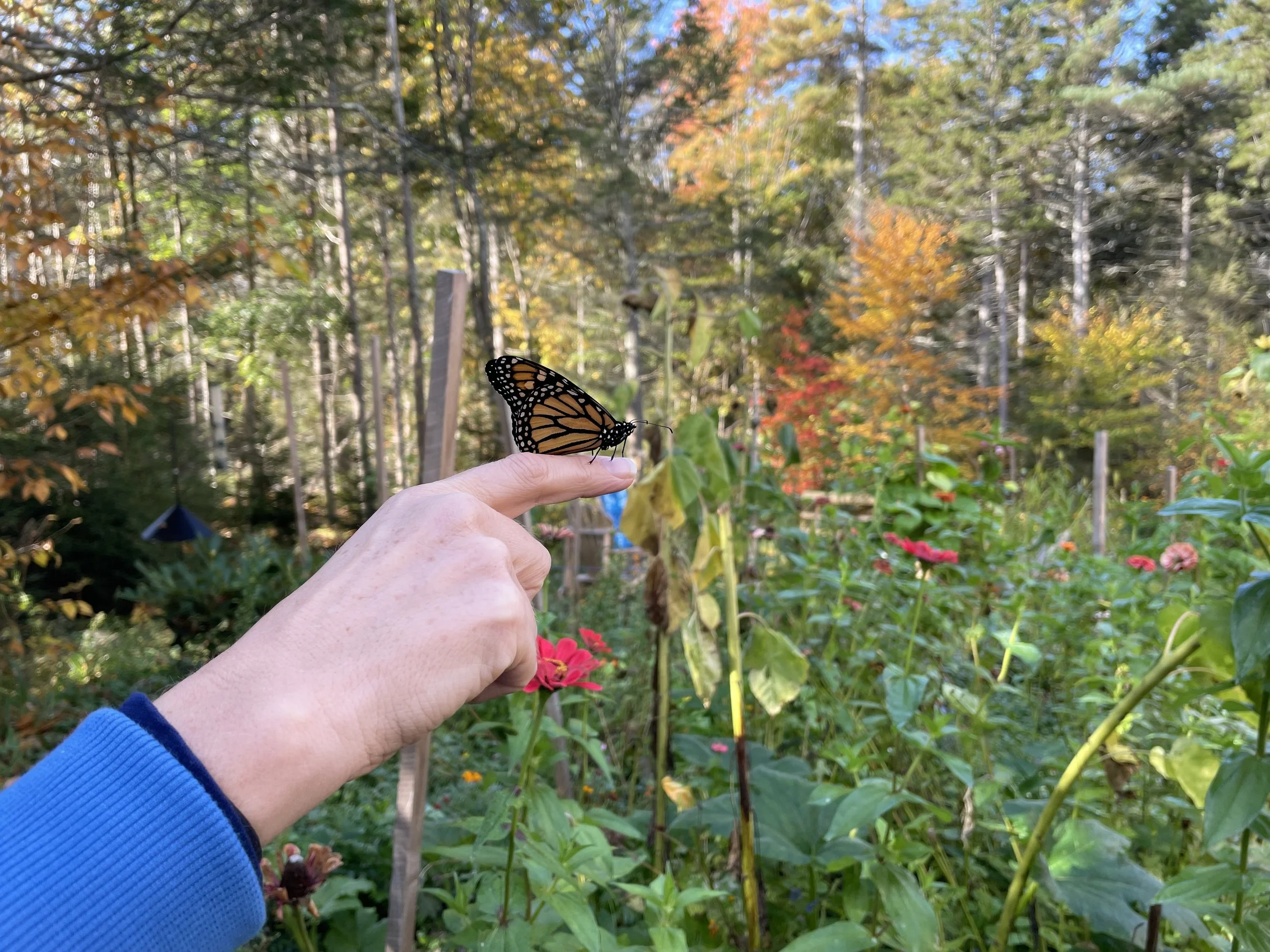
Adult Education
Knox-Lincoln SWCD offers a wide range of programs for adults. Some programs are offered annually; others may be offered every other year. Visit Events and Workshops for all upcoming events and programs.
Pond Construction & Maintenance Workshop
Knox-Lincoln Soil & Water Conservation District, in partnership with the USDA-Natural Resources Conservation Service (NRCS) offers a Pond Construction and Maintenance Workshop every other year.
Constructed ponds can add value to a property – if properly built and maintained! We will review the basics of designing, planning, constructing and maintaining a private pond as well as information on water testing. We will focus on pond biology and the wildlife associated with ponds in Maine. We will discuss pond habitat features for aquatic and terrestrial wildlife, fish considerations, and nuisance wildlife.
Our 2025 pond workshop is on Wednesday, April 30 at Brodis Blueberries in Hope. Learn more and register.
If you already have a pond and would like to stock it with rainbow or brook trout this spring, visit our Trout Stocking Sale page for ordering and pick-up details.
Pruning Apple Trees
Knox-Lincoln Soil & Water Conservation District offers a demonstration workshop to teach skills and techniques for pruning apple and other fruit trees.
Travis Hamilton, owner and operator of Arbor Tech in Searsmont, will teach pruning techniques needed to keep your trees healthy and productive. Whether you have a small home orchard or one old tree that feeds the deer, this workshop will teach you the basic pruning techniques needed to keep your trees alive - and bearing fruit.
If you missed our workshop on March 15, UMaine is hosting a workshop in Rockport on March 29.
NPS Trainings for the General Public
Knox-Lincoln Soil & Water Conservation District occasionally offers Instruction and education opportunities to individuals seeking to educate themselves on the effects of non-point source (NPS) pollution in Maine. Programs and resources help provide tools and practices to prevent this diffuse pollution at its source.
NPS Trainings for Certified Contractors
Knox-Lincoln Soil & Water Conservation District regularly offers training for contractor certification.
Courses may be of interest to contractors, landscapers, municipal officials, engineers, inspectors, and project managers.
Exploring the Forest Trees of Maine
Join Knox-Lincoln SWCD and Maine Forest Service District Forester Allyssa Gregory for an exploration of the trees of Rockland Bog Preserve, a Georges River Land Trust Preserve on Thursday, April 10
Conservation Landscaping Program Topics:
Knox-Lincoln Soil & Water Conservation District offers several programs on how to protect water quality and the natural environment through conscientious landscaping practices. All of these programs can be tailored to landowner, municipal, or professional audiences.
Beef Up Your Buffer: When More IS Better...and Why
Whether you are building a “living fence” along your property or your aim is to improve water quality by reducing erosion and run-off along your waterfront, a buffer is what you need!
Runoff from gravel roads and shoreland home-sites is the Number 1 cause of lake, pond and stream pollution in the state of Maine. Water traveling over the surface of roads and yards carries nutrients and other pollutants into waterbodies; soil from erosion is carried in runoff and results in sedimentation, as well as carrying phosphorous, a limiting nutrient for algal blooms. Vegetated buffers absorb water and nutrients, trap excess soil, provide wildlife habitat, and mimic natural systems to create a dynamic landscape to enjoy in all seasons.
This slide presentation will demonstrate how landowners can improve their home-sites with a vegetated buffer of native plants.
Establishing a Wildflower Meadow from Seed
Wildflower meadows are extremely valuable habitat, providing floral resources, nesting sites, and a protected environment for hundreds of native bees and other pollinators.
Meadows also provide many important ecosystem services including infiltration and filtration of stormwater, carbon storage, nutrient recycling, and soil building. Property owners can enjoy the beauty of a succession of flowers and plant forms and experience a renewed connection with nature.
Building Climate Resilience with Native Plant Species
Learn what you can do on your property to build resiliency as the climate changes. This workshop will discuss planting native plant species.
Native Plants for Water Quality and WOW!
When choosing plants for your home landscape, why not choose a native or native cultivar that will be well-adapted to the environment, provide habitat for wildlife, and add a certain something special to your landscape? Join us to meet native perennials and shrubs that can be found locally and learn which non-natives to avoid. Learn tips and techniques on how to improve your landscape with all of these elements in mind.
Rain Garden Installation and Best Practices
Do you have excess water on your property following a rain event? A rain garden could be an effective and attractive solution for helping to direct and infiltrate the runoff or pooling on your property. Learn the ins and outs of properly installing a rain garden as well as other water management techniques that could benefit your property.
Native Groundcovers
Discover how to boost the biodiversity of your landscape from the ground up by using native groundcovers. Groundcovers are spreading plants that form dense stands, crowd out weeds and hold soil to prevent erosion. Unlike lawn grasses, native groundcovers offer color and texture throughout the year and provide food and habitat for native fauna. Planting of native groundcovers won’t take the place of lawn used for recreation, but will create a fairly low-maintenance alternative to areas of un-used lawn in a landscape.
Lush Lawns without Chemicals
Do you want a healthy and safe lawn? Just because weed and insect controls can be bought at a store doesn't mean they are safe - they are designed to be toxic. Fertilizers are often used unnecessarily, wasting money and polluting our waters. We can help you reduce the use of fertilizers, insecticides, and herbicides and still have a lush, green lawn!
Beyond the Birdfeeder: Creating Resilient Habitats
Both native and non-native plants have leaves and their flowers have seeds and nectar - so why is it that native plants are better for wildlife? Learn about the elements of a home landscape that encourages wildlife - the kind you want - and which native plants provide the most bang for your buck!
Invasive Plants of Midcoast Maine
Ever wondered why folks are worried about invasive plants, how they got here in the first place and are they really harmful to the ecosystem. Learn about the plants "from away" that are disturbing natural ecosystems and replacing the native vegetation that defines our region and on which wildlife depends. Learn to recognize key invasives in our area and explore control & prevention strategies.
Community Detectors: Invasive Tree Pests to Know
Invasive forest pests are a serious threat to our woodlands and landscapes - and most infestations are first detected by local residents. Funded by a grant from Maine Department of Agriculture, Conservation & Forestry.
To schedule a program for your group, please call (207) 596-2040 or email info@knox-lincoln.org.

Contact us about programming
To schedule a program for your group, please call (207) 596-2040 or email info@knox-lincoln.org






